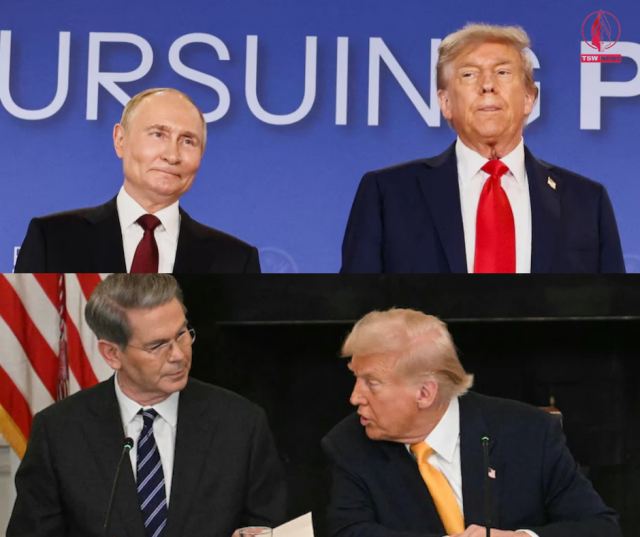US Democrats Slam Trump’s Tariffs on India, Say Move Won’t Stop Putin
- Posted on August 16, 2025
- International Politics
- By Arijit Dutta
- 141 Views
US Democrats blasted Trump’s decision to impose secondary tariffs on India for buying Russian oil, saying it won’t stop Putin or end the Ukraine war. Treasury Secretary Scott Bessent defended the policy, warning more sanctions could follow, but admitted European leaders remain hesitant to back Washington’s tough measures.

Democrats on the US House Foreign Affairs Committee have strongly criticized President Donald Trump’s decision to impose secondary tariffs on India for purchasing Russian oil, arguing the measure will do little to deter Russian President Vladimir Putin or halt the war in Ukraine.
“Tariffing India won’t stop Putin,” the committee’s Democratic members posted on X, formerly Twitter. “If Trump really wanted to address Russia’s illegal invasion of Ukraine, maybe punish Putin and give Ukraine the military aid it needs. Everything else is smoke and mirrors.” Their statement came shortly after Treasury Secretary Scott Bessent defended the administration’s move in a media interview.
Bessent said the US has already levied tariffs on India for buying Russian oil and warned more could follow if Moscow does not shift course. He emphasized that Trump wanted Putin to know “all options are on the table.” The secretary added that sanctions could be tightened, loosened, or extended indefinitely, particularly against Russia’s so-called “shadow fleet” of oil tankers.
However, Bessent admitted Washington faces hurdles in securing wider international backing. At a recent G7 meeting in Canada, he said European leaders were reluctant to endorse secondary sanctions or punitive tariffs on China. “The Europeans need to join us,” he argued, recalling how leaders avoided committing when asked if they would support tariffs as steep as 200 percent.
Also Read: Trump and Putin to Hold Alaska Summit on Ukraine Ceasefire and Nuclear Deal
The move against India has sparked debate in Washington, with critics claiming it risks straining ties with a key partner while failing to meaningfully pressure Moscow. Supporters argue that secondary sanctions are necessary to curb Russia’s wartime revenues. With global consensus fractured, the effectiveness of Trump’s tariff strategy remains uncertain.




